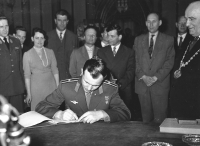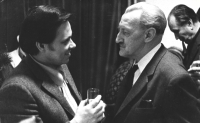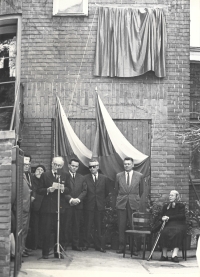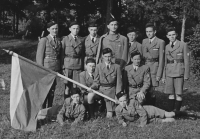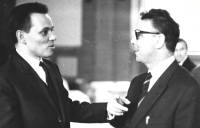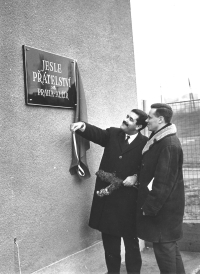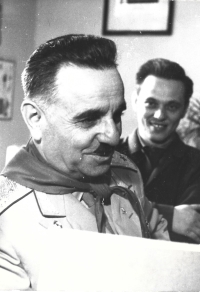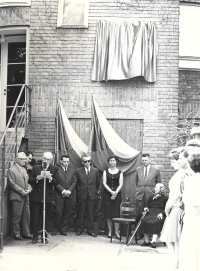Only in adulthood did I realise that the communist idea is not possible
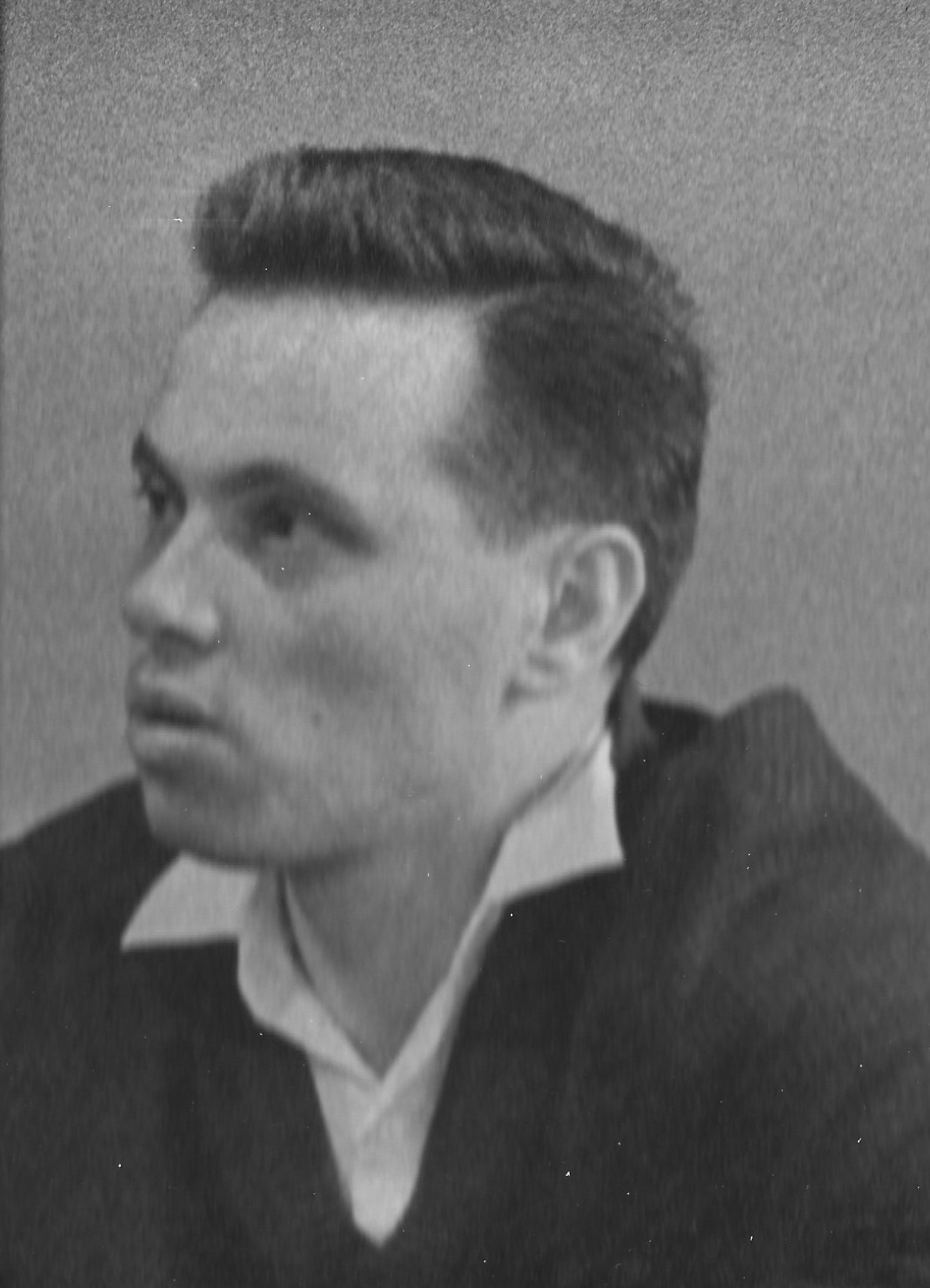
Download image
Jaroslav Klouda was born on 30 July 1931 and grew up in the South Moravian village of Drásov. His father, Otakar Klouda, was a cantor, headmaster of a primary school and after 1945 a member of the Communist Party. After the Second World War the family moved to Brno. He entered the grammar school there. In 1949, he joined the Youth Leads Brno event organised by the then regional secretary of the Communist Party of Czechoslovakia, Otto Šling. At the same time, he himself joined the Communist Party. At the beginning of the 1950s, he began studying at the Faculty of Law of Charles University in Prague. In 1956 he travelled as a member of a university delegation to Dubrovnik, Vienna and Paris. In 1957, he joined the Municipal Court in Prague and became a councillor of the City of Prague. From 1964 to 1970 he served as chairman of the District National Committee (ONV) of Prague 6. After he publicly disagreed with the invasion of the Warsaw Pact troops, he lost his membership in the Communist Party of Czechoslovakia during the normalisation period and had to leave his position as chairman of the ONV. In 1975 he lost his position in the court. He found employment in the investment department of the Transport Company in Prague and was able to travel abroad on business trips. After the revolution, he returned to advocacy. In 2023 he lived in Prague.

